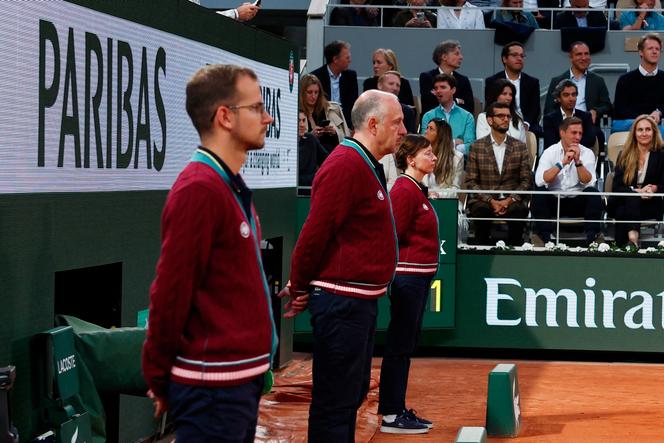
At the 1984 French Open, John McEnroe was angry. In the round of 16 against José Higueras, “everything was going against him,” said Roger Zabel on French television that day, “So he has to take it out on something or someone. TV microphones. The photographers and spectators. The umpire.” At 0-15 in the third set, the American contested a disputed ball, called foul by a line judge. Higueras, an honorable player, acknowledged that it was a good ball and, in a surreal image, the Spaniard begged the umpire on his knees to give the point to his opponent.
These moments of drama, which are the pride and joy of the stage that is Roland-Garros, will soon be gathering dust for good. Even if it hasn’t yet been officially decided, line judges are probably living out their final hours on the Paris clay courts. From 2025, electronic refereeing will replace them at all ATP main tour tournaments (ATP 250, 500 and Masters 1000). “Tradition is at the heart of tennis (…), but we have a responsibility to embrace innovation and new technologies,” explained the head of the men’s circuit in April 2023, Andrea Gaudenzi.
As independent Gram Slam tournaments are free to make their own rules about such matters, the French Open could have let the tradition continue on the crushed brick, where ball marks are still visible after impact. However, both the US Open and the Australian Open have already taken the plunge since 2021. It’s hard to imagine their French cousin not following suit. The tournament’s director, Amélie Mauresmo, already paved the way at her pre-tournament press conference, saying she “wouldn’t be afraid to put the subject on the table.”
‘We’re going to sanitize tennis too much’
With their hands on their knees or behind their backs, their eyes hypnotically focused on the lines, these umpire’s assistants have been part of the scenery since the stadium was founded in 1928. The 330 men and women officiating this year have been given firm instructions not to speak out on the subject. Among former players, though, the debate is quite clear-cut.
There are those, like Henri Leconte, who side with the tradition of their sport and fear seeing part of its soul evaporate. “We’re going to sanitize tennis too much, it’s going to become a machine that says ‘fault’, ‘out’. We mustn’t lose our sport, it’s a sport of values,” said the finalist in the 1988 edition, who lost against Mats Wilander. Guy Forget is also a loyalist. The former tournament director underlined the culture of French umpiring, whose quality he said has been recognized abroad “for decades”: “These performances and this consistency, they are due to an industry, to training. Is [the reform] indispensable? I’m not convinced.”
You have 59.57% of this article left to read. The rest is for subscribers only.